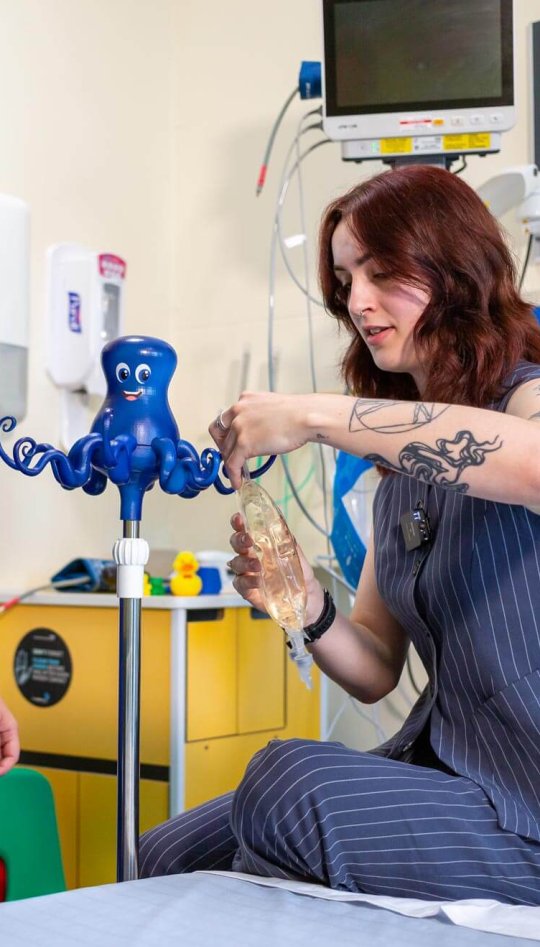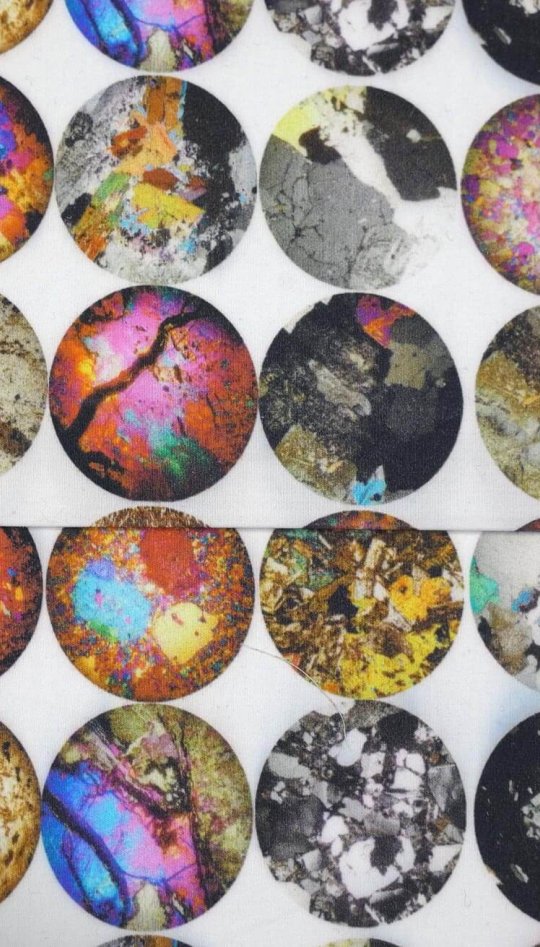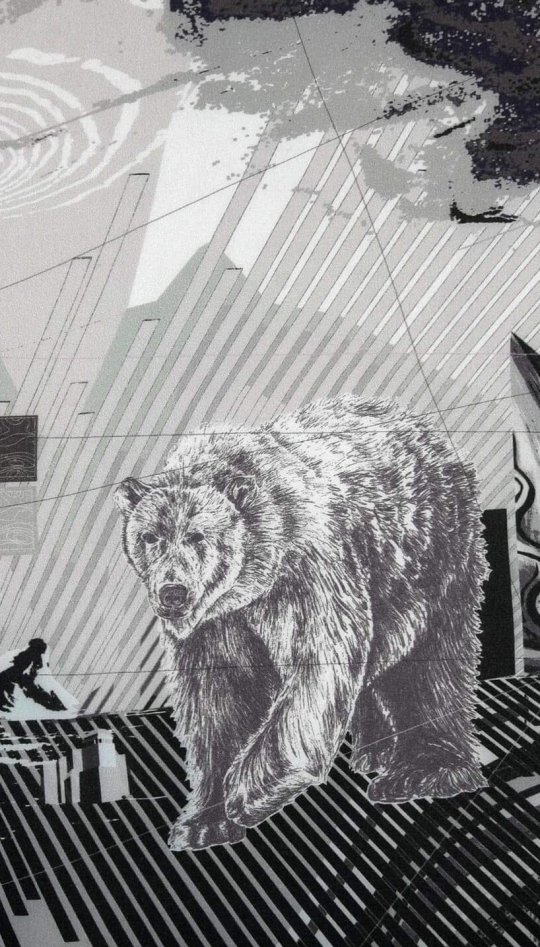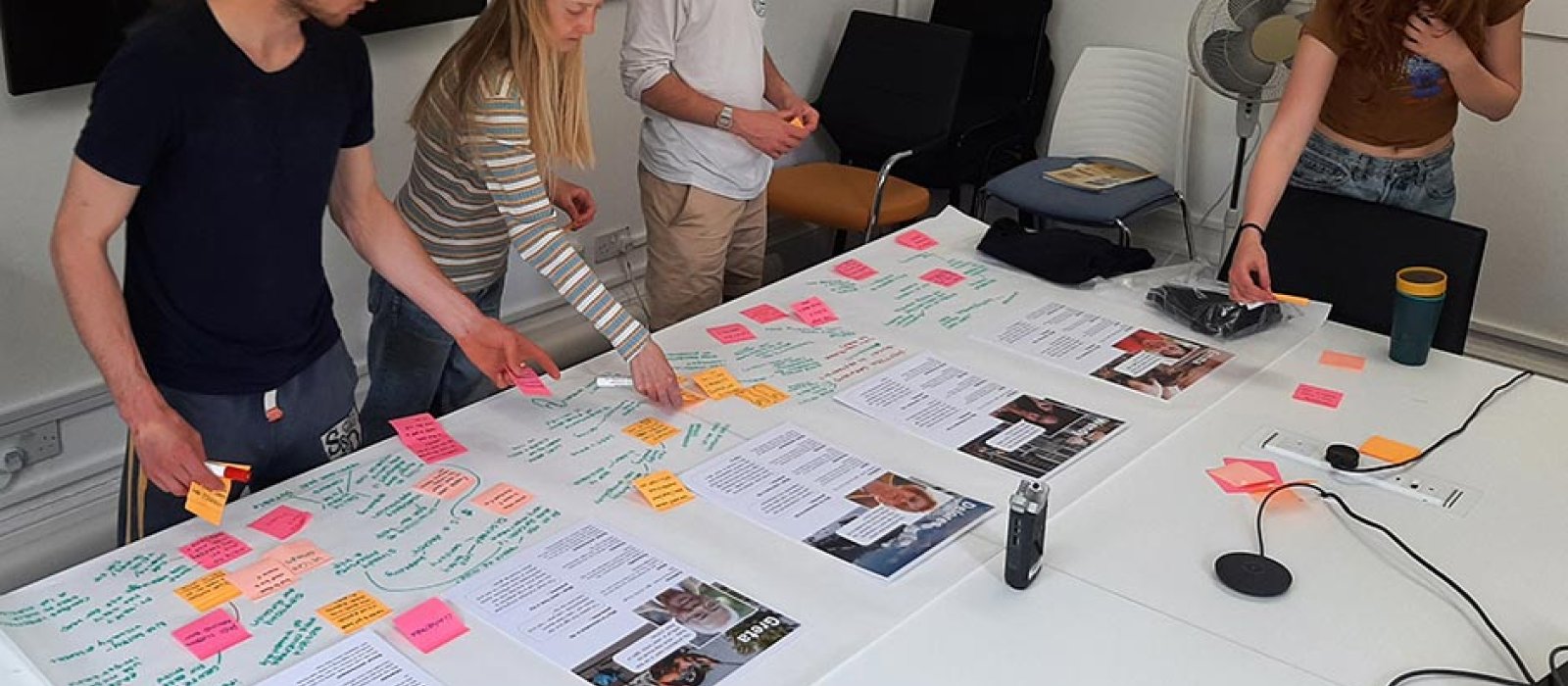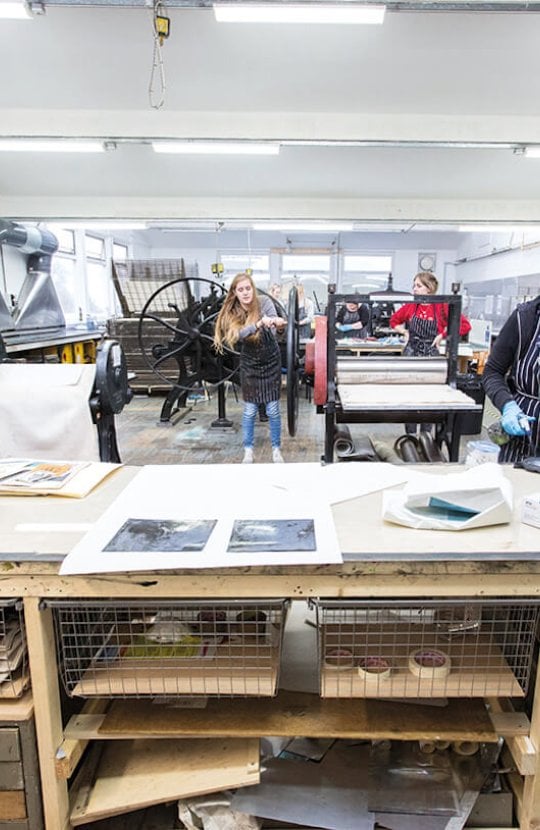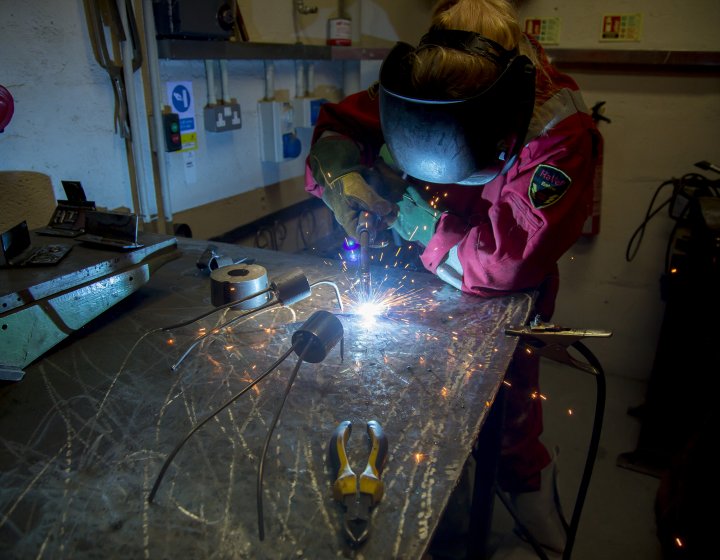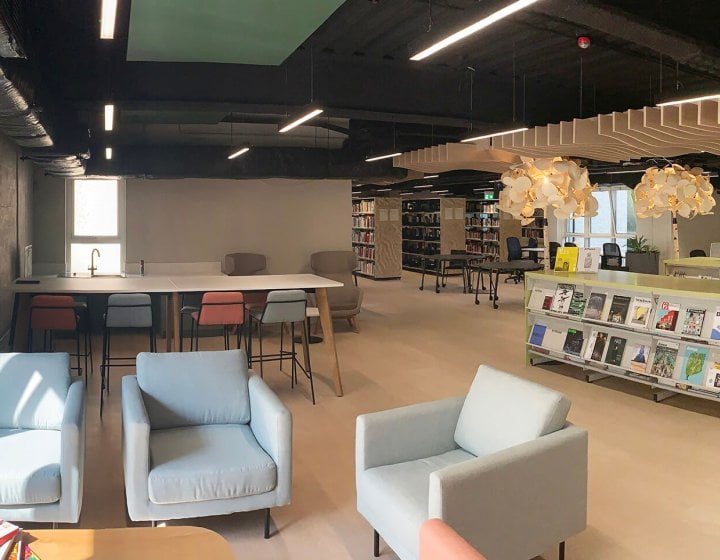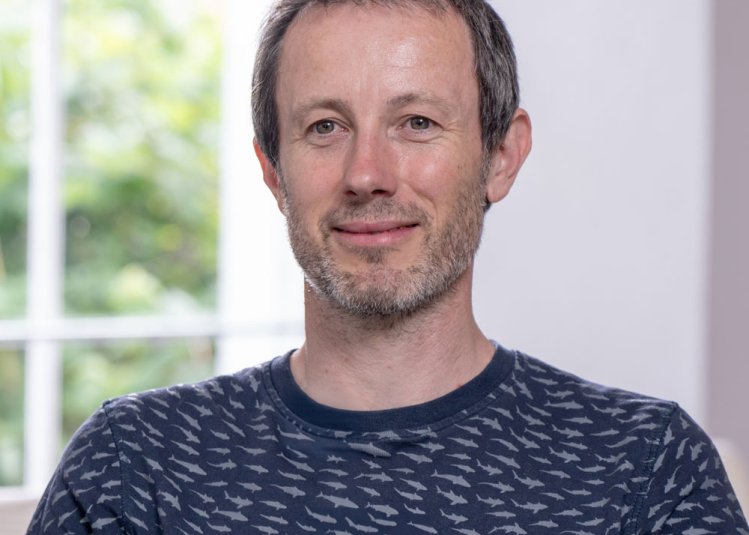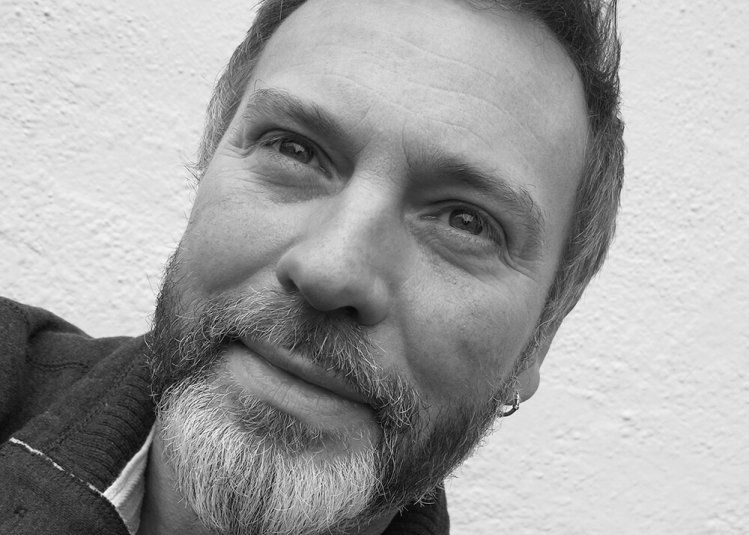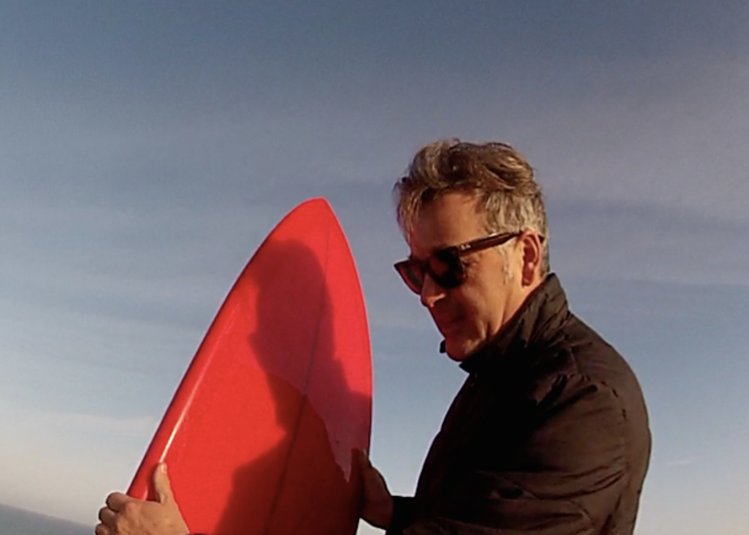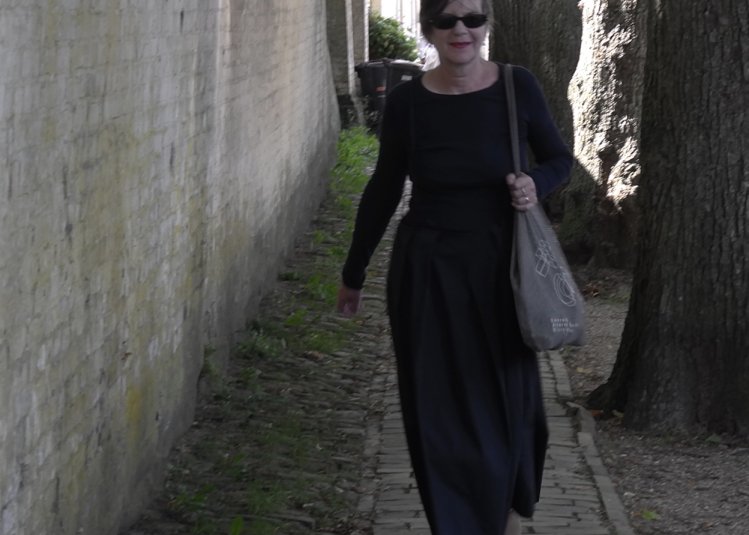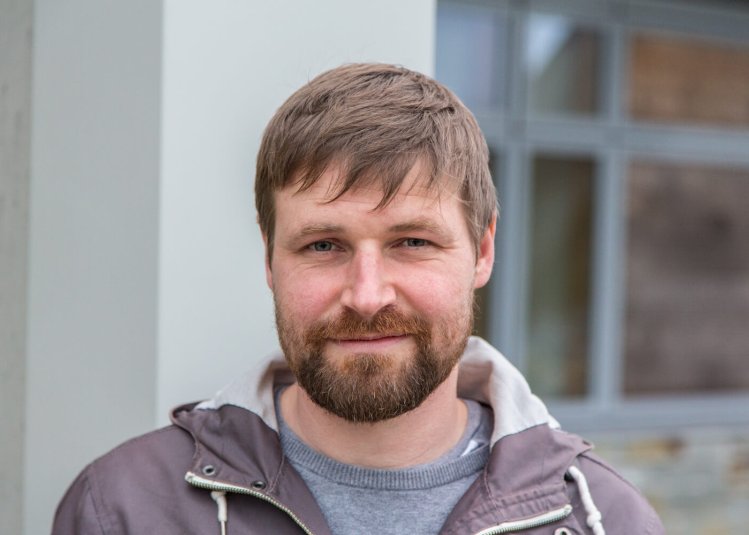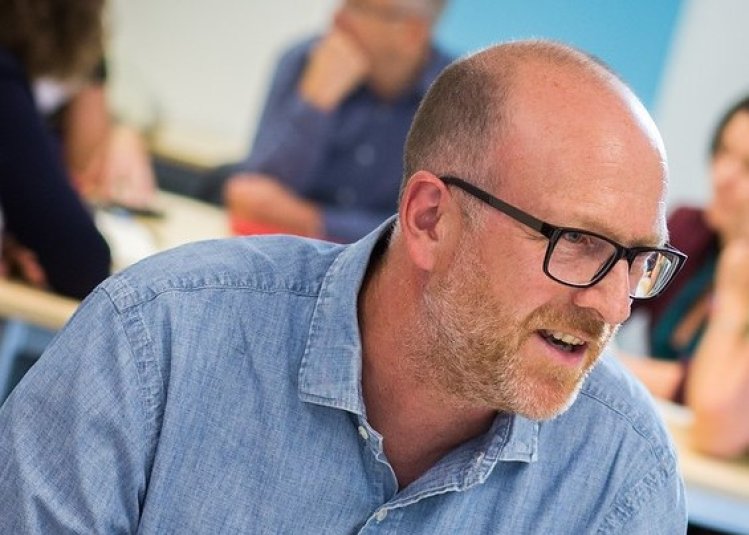Course overview
Design Innovation MSc is a one-year, intensive master’s course designed to equip you with the skills to create impactful product and service solutions – shaping better outcomes for people, places, and the planet.
Choose the core MSc or specialise in one of three distinct awards – Healthcare, Materials, or Events – to develop skills in research, design thinking, ideation, collaboration, and digital tools. Throughout the course, you’ll tackle real-world problems, particularly those related to the UN’s Sustainable Development Goals.
Through both qualitative and quantitative research methods, you’ll identify opportunity gaps and apply sustainable design practices. This interdisciplinary course fosters collaboration, enhancing teamwork and process management skills, as well as deepening your knowledge of business contexts, the circular economy, and prototype evaluation.
You will refine your digital skills in UX/UI and product and experience design, utilising AI tools for ideation and design. You will also develop prototyping skills, including 3D printing for real-world testing.
Graduates from this forward-thinking master’s course will be highly skilled, ethically driven, and equipped to design sustainable solutions to global challenges.
Why study this course at Falmouth?
- Complex problem solving & innovation: Identifying and solving complex problems using creative design thinking, and evaluating potential solutions.
- Sustainability & social justice: Applying sustainable design strategies, understanding social-environmental justice, and promoting transformative change aligned with UN Sustainable Development Goals
- Digital & design skills: on the Healthcare and Materials specialisms you will develop proficiency in 2D/3D CAD, UX/UI design software, AI tools, prototyping, and 3D printing
- Research & critical thinking: Conducting user-centred research, ethical application of research skills, and critical evaluation.
- Team collaboration & leadership: Developing collaborative leadership, interdisciplinary teamwork, and effective project management skills.
- Contextual understanding & diversity: Understanding diverse social, cultural, and technological contexts, promoting respect for equality and diversity.
- Time & resource management: Managing time, resources, and systems while adopting sustainable, inclusive, and resilient approaches.
Top image credits: Florence Mitchell, Ellie Tallett, Ellie Mae Barr.
Overviews of each specialism
Design Innovation MSc is a one-year course that will challenge you to innovate new product and service solutions towards healthier people and planet outcomes. You will develop research, analysis, design thinking, rapid ideation, collaborative working and digital software skills to discover, develop and communicate informed proposals within the context of the product design and service design sectors.
Design innovation is at the core of this process, and you will learn key problem-solving skills through real-world projects that tackle UN Sustainable Development Goal challenges. Using qualitative and quantitative research methods, you will define viable opportunity gaps and employ creative and sustainable design skills to generate design innovations, helping to transform society. Throughout the course, you will engage in practice-based learning rooted in sustainable design that embraces environmental, social, and economic sustainability.
From module information to course aims and assessment criteria, discover the full course details:
This one-year course focuses on design innovation, enabling you to develop sustainable, ethically informed solutions to healthcare challenges. You will engage in real-world healthcare projects, exploring product-service-system (PSS) models that emphasise holistic user experience design and creative problem-solving. The course is built around practice-based learning, encouraging you to develop research skills that address critical design challenges in clinical, care, and broader health settings.
You will gain hands-on experience working alongside healthcare professionals and patients, using trauma-informed practice to enhance your understanding of trust-building in healthcare settings. By investigating inclusive and adaptive design, including Class 1 medical devices, you will explore how to create solutions that meet diverse needs.
Through collaboration with students from various design fields, you'll refine your interdisciplinary skills. The course also introduces AI tools, business contexts, and the circular economy to evaluate the real-world viability of your ideas. Ultimately, you'll acquire key expertise in healthcare innovation and sustainable design thinking.
From module information to course aims and assessment criteria, discover the full course details:
The one-year Design Innovation: Materials course teaches students to harness innovative concepts and methods to address global challenges through material design. Focusing on textiles, biomaterials, flexibles, and circular techno-sphere materials, the course explores sustainable practices and their social impact across various applications, such as wearables, products, and architecture.
Students will develop expertise in material innovation, learning to assess opportunities in collaborative and entrepreneurial contexts. The course emphasises iterative design processes, sustainable production techniques, and material science principles, integrating industrial, digital, and craft practices. A central theme, "people and material culture," examines how materials shape society, encouraging students to engage with communities and institutions to foster positive change.
Students will also explore "material futures," identifying concepts with social and cultural impact through prototypes and research. Throughout the course, students will build a portfolio of innovative samples and gain key employability skills, including communication, report writing, and entrepreneurial thinking, aligned with the UN Sustainable Development Goals.
From module information to course aims and assessment criteria, discover the full course details:
The Design Innovation: Events MSc course fosters interdisciplinary thinking and hybrid mindsets, enabling students to explore creative practices in event-based design.
The course includes modules on audience and event management, sustainable practice and event design to evaluate ideas, prototypes, and their real-world potential in the events industry. Students will work closely with potential users of event-related products and services to identify design innovation opportunities.
The course provides a collaborative, transdisciplinary learning environment, where students from diverse specialisms - including from Materials and Healthcare - engage in shared projects. This encourages a holistic approach to designing for events and cultivating creative problem-solving skills.
From module information to course aims and assessment criteria, discover the full course details:
Similar courses
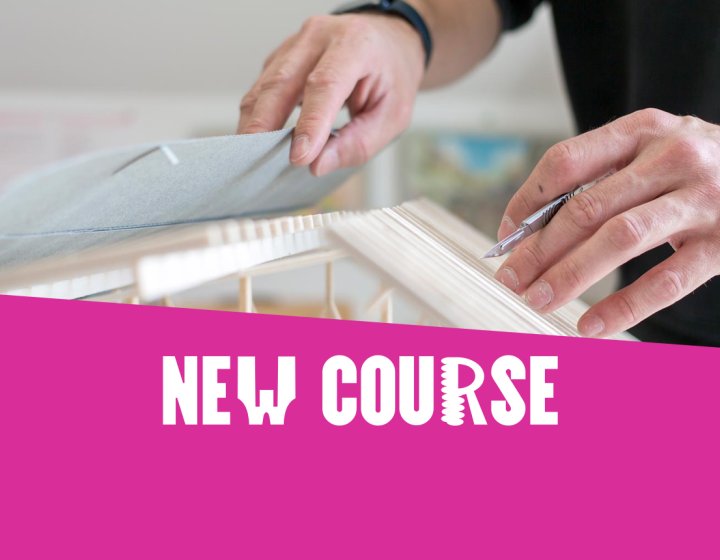
Spatial Design MA
Learn to design spaces that are responsible, ethical and responsive to real communities. ...
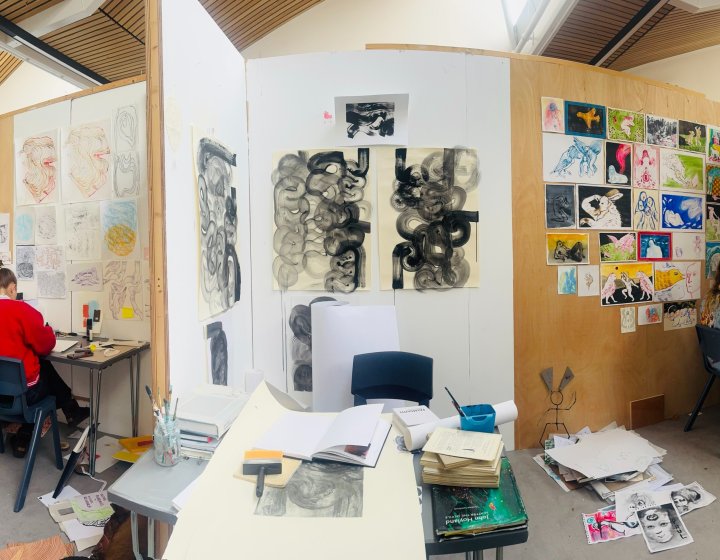
Fine Art MA
Refine your artistic practice through experimentation, innovation and applied research.
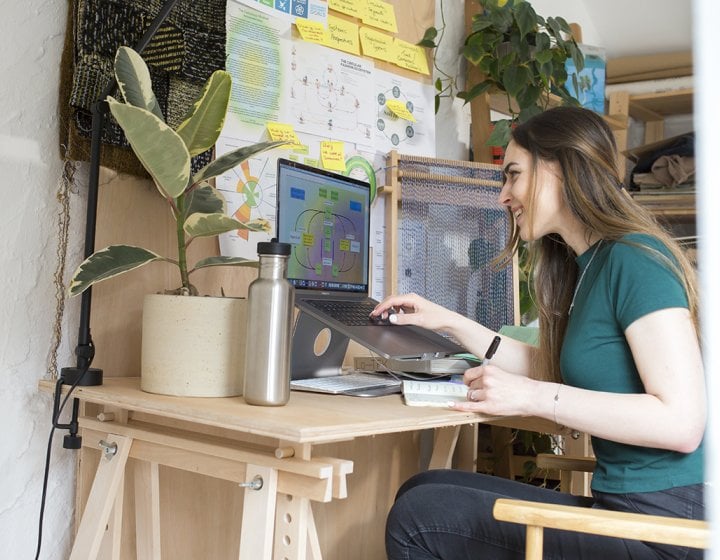
Sustainable Fashion MA (Online)
Become a conscious changemaker in the 21st century fashion industry. Position yourself as a catalyst...
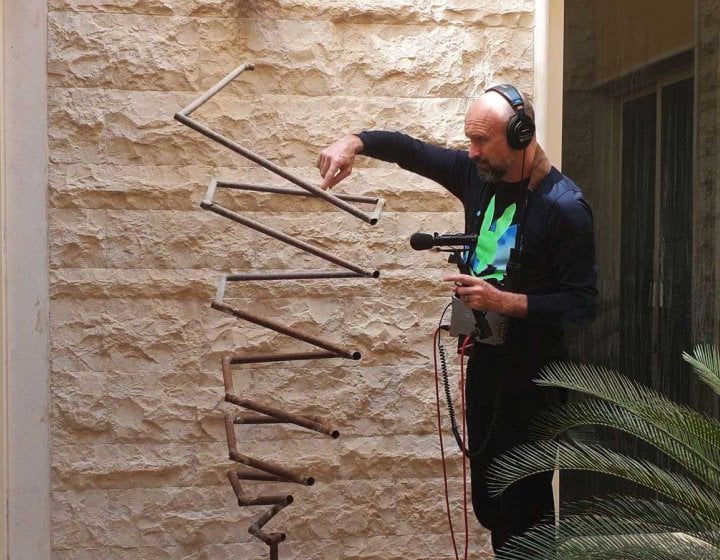
Fine Art MA (Online)
Tap into Falmouth’s renowned fine art expertise from your home and studio. You'll learn to build a...
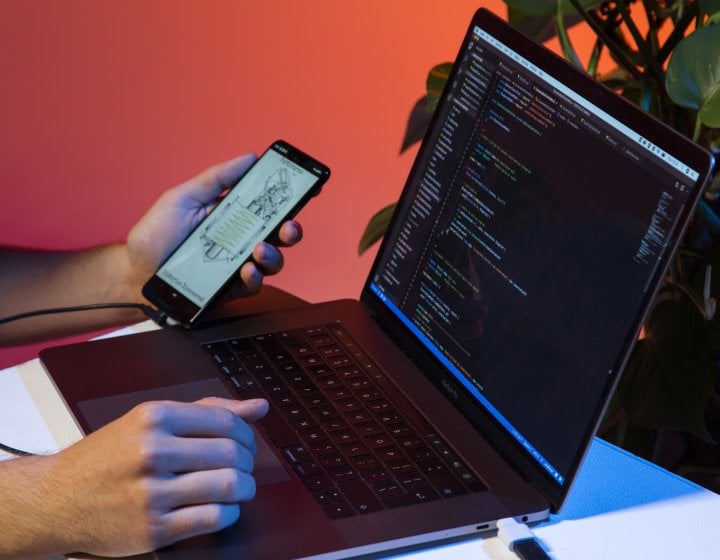
User Experience Design MA (Online)
Learn how to apply key principles of user-centered design to create original work based on your own ...
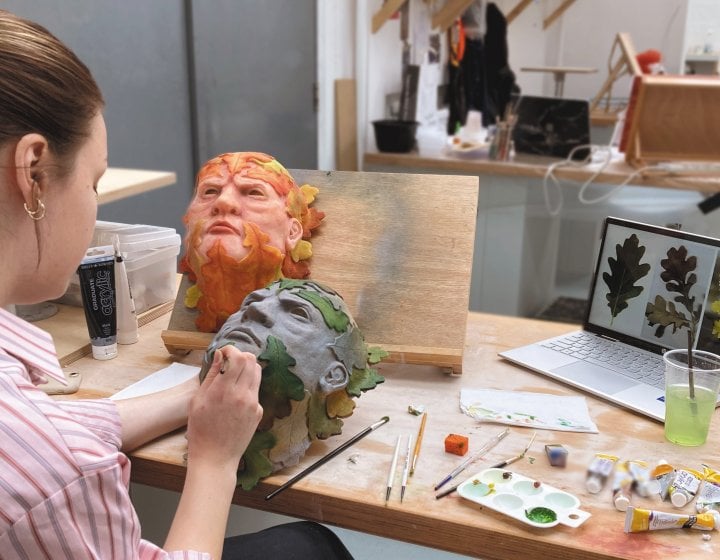
Prosthetic Effects MA
Launch your career in prosthetic effects with this unique course. Working hand-in-hand with world-cl...
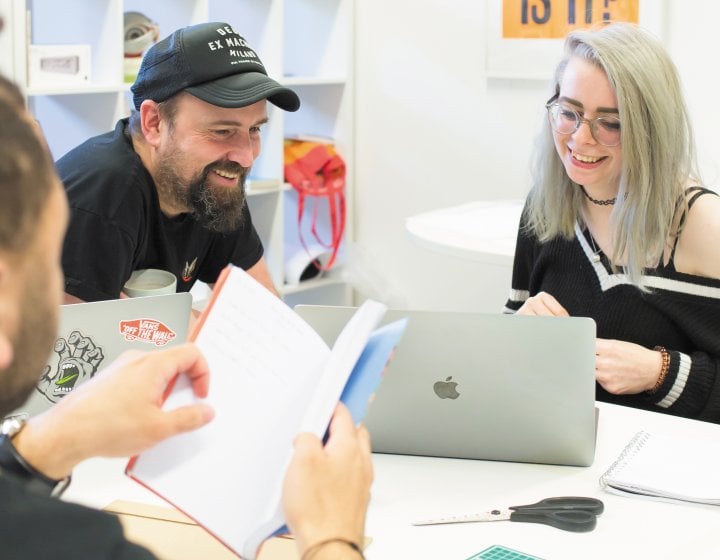
Communication Design MA
Design thinking is an essential tool for understanding the world around us, and at a time of unprece...
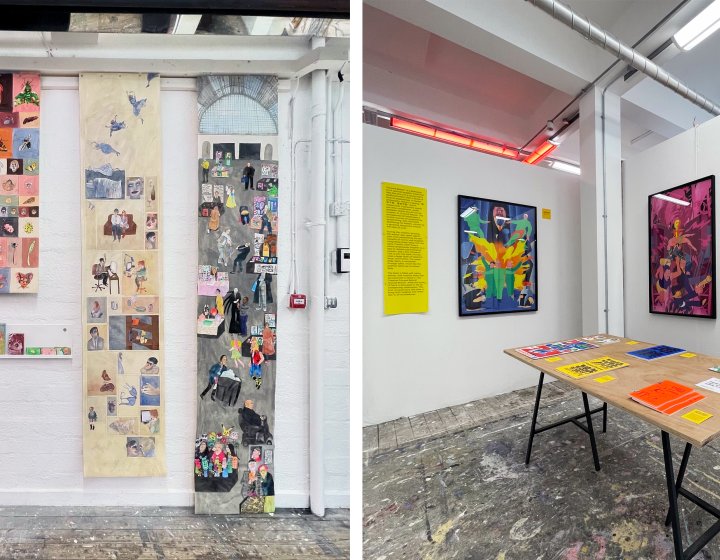
Illustration: Authorial Practice MA
Develop your unique visual language on this studio-based Illustration MA. You’ll learn to see your...
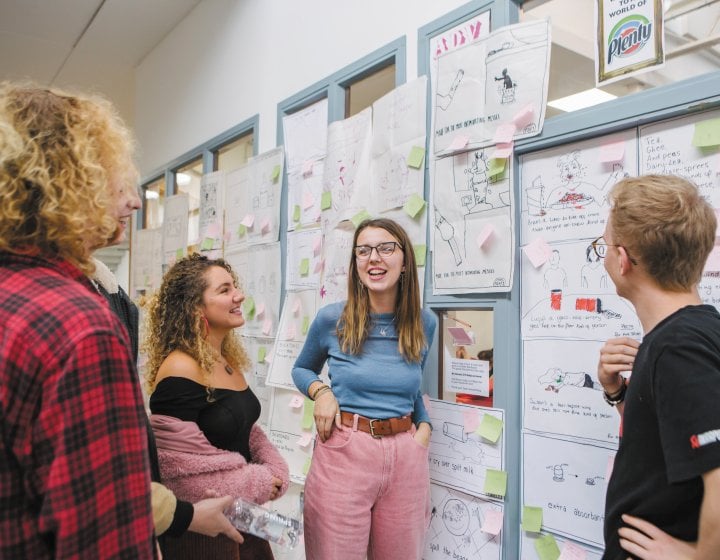
Creative Advertising MA
Master the contemporary craft of advertising. On this innovative master's course, you’ll ente...
